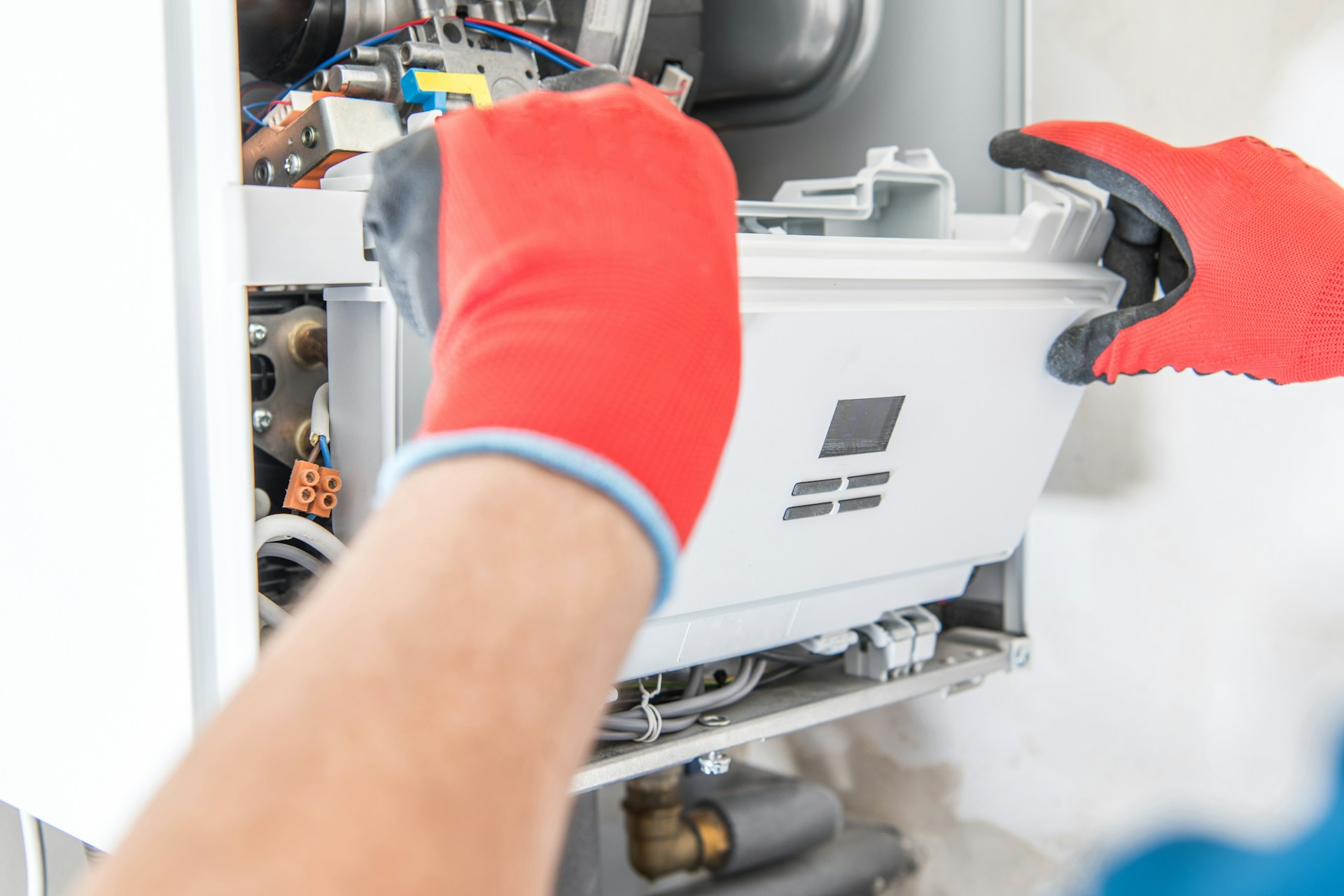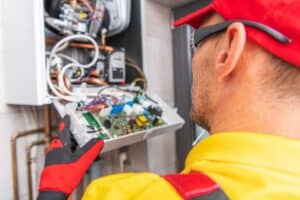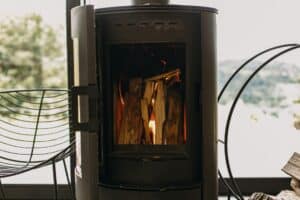
It can be a hassle when your furnace isn’t heating enough, especially during the colder months. Understanding why your furnace isn’t working properly can help you quickly fix the problem and keep your home warm and cozy. There are several reasons your furnace might not be heating as it should.
Knowing these potential problems and how to troubleshoot them can keep your furnace in good shape and ensure your home stays warm. In this article, we’ll explore common reasons your furnace might not be heating correctly, provide troubleshooting tips, discuss the benefits of regular maintenance, and explain when to call a professional HVAC technician.
Common Reasons Your Furnace Isn’t Heating Properly
If your furnace isn’t heating your home adequately, several common issues might be the cause. Identifying the problem can help you decide the best course of action to restore warmth to your living space.
1. Clogged Air Filters: Dirty or clogged air filters are among the most frequent problems. When the air filter is clogged, it restricts airflow, making it difficult for the furnace to distribute heat effectively. Replace the filters regularly to ensure proper airflow.
2. Faulty Thermostat: A malfunctioning thermostat can create heating issues. If it’s not calibrated correctly or the batteries are low, the thermostat may fail to signal the furnace to turn on or adjust the temperature correctly.
3. Pilot Light or Ignition Problems: Older furnaces often have a pilot light; if it goes out, the furnace won’t ignite. Issues can arise from faulty ignition controls or sensors in newer furnaces with electronic ignition systems.
4. Leaky Ductwork: Leaks or holes in the ductwork can cause warm air to escape before it reaches the intended rooms. Sealing any leaks in the ducts can improve heating efficiency.
5. Blower Issues: The blower fan circulates warm air throughout the home. The heat won’t reach all areas adequately if the blower isn’t working correctly. Check for blower motor issues or obstructions in the fan.
How to Troubleshoot Furnace Issues
When your furnace isn’t heating correctly, there are several troubleshooting steps you can take to identify and possibly resolve the problem:
1. Check the Thermostat: Start by ensuring the thermostat is set to “heat” mode and the temperature setting is higher than the current room temperature. Replace the batteries if necessary and make sure they are functioning correctly.
2. Inspect Air Filters: Check the air filters to see if they are dirty or clogged. If they are, replace them with new, clean filters. This simple step often solves heating issues.
3. Examine the Pilot Light: Ensure the light is lit for furnaces with pilot lights. If it’s out, follow the manufacturer’s instructions to relight it. For electronic ignitions, reset the system and check the ignition controls.
4. Check Circuit Breaker: Ensure the furnace’s circuit breaker hasn’t tripped. Reset it if needed. Ensuring your furnace has power is crucial for its operation.
5. Inspect the Blower Fan: Open the furnace panel and check the blower for any obstructions. Ensure the motor works and the fan blades rotate freely.
6. Check Ductwork for Leaks: Walk around your home and check for uneven heating. Look for visible leaks or damage in the ductwork. Seal any visible gaps with duct tape.
Following these troubleshooting steps, you can often identify and fix common furnace issues, saving you time and comfort while keeping your home warm.
Benefits of Regular Furnace Maintenance
Regularly maintaining your furnace is essential to ensuring it operates efficiently and reliably. Here are some key benefits of keeping up with routine furnace care:
1. Improved Efficiency: Regularly cleaning and servicing your furnace keeps it running efficiently. Dust and debris can build up in parts like the blower and vents, making the furnace work harder to heat your home. Maintenance checks can keep these parts clean, reducing energy consumption and lowering utility bills.
2. Extended Lifespan: Proper maintenance helps prolong the life of your furnace. Routine checks and tune-ups can prevent minor issues from becoming big problems, ensuring your furnace lasts longer and saving you money on replacements.
3. Enhanced Safety: Regular furnace inspections can identify potential safety hazards like gas leaks or faulty valves. Addressing these issues promptly protects your home and family from harmful situations like carbon monoxide poisoning or fire hazards.
4. Consistent Heating: Maintenance ensures all parts of the furnace work correctly, providing even and reliable heating throughout your home. This reduces the likelihood of hot or cold spots, making your home more comfortable.
5. Preventative Care: Regular check-ups can catch issues early before they turn into costly repairs. A well-maintained furnace is less likely to break down during peak usage, providing peace of mind throughout the heating season.
Regular maintenance saves on repair costs, keeps your furnace running efficiently, and ensures your home stays warm and safe.
When to Call a Professional HVAC Technician
Despite your best efforts in troubleshooting, furnace issues sometimes require professional intervention. Here are instances when you should call a professional HVAC technician:
1. Persistent Problems: If you’ve tried troubleshooting common issues but your furnace still isn’t working correctly, it’s time to call for help. Persistent problems like frequent cycling, strange noises, or insufficient heating need an expert diagnosis.
2. Complex Repairs: Professionals should always handle issues like electrical problems, gas leaks, or malfunctioning components. These situations can be dangerous and require specialized knowledge and tools.
3. Annual Maintenance: Even if your furnace seems to be working fine, having it inspected by a professional at least once a year is a good idea. A technician can thoroughly check and ensure everything is in top shape.
4. Installation Needs: Always hire a professional if you need a new furnace installed. Proper installation ensures your new furnace operates efficiently and lasts as long as possible.
5. Emergency Situations: If your furnace breaks down entirely or you detect a gas smell, contact a professional technician immediately. These situations need prompt and skilled attention to prevent harm or damage.
Conclusion
Your furnace is vital in keeping your home comfortable during colder months. Identifying common problems and knowing how to troubleshoot them can help you maintain a warm environment. Regular maintenance keeps your furnace working efficiently, extends its lifespan, and ensures safety. However, some issues are best left to professionals.
At my-jockey.com, we understand the importance of a reliable heating system. Whether you need an annual check-up, complex repairs, or a new installation, our experienced HVAC technicians are here to help. Maintaining your furnace doesn’t have to be a hassle—reach out to us for expert care. Contact My Jockey today to schedule your furnace humidifier service and keep your home cozy all winter.




